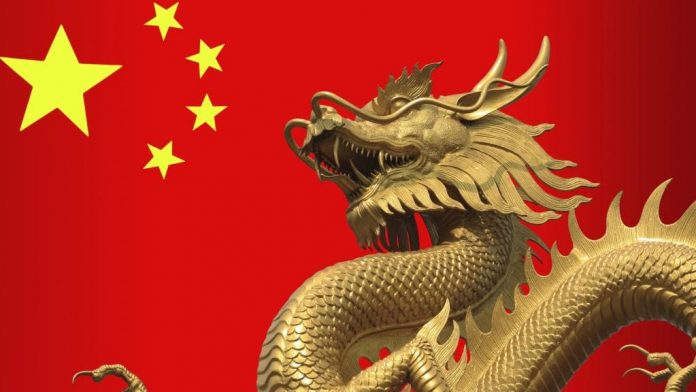Writing for The Express Tribune, author Shakeel Ahmad Ramay explains that China has been making efforts to revitalize the Belt and Road Initiative (BRI) in recent times.
This is not surprising given the relaxation of Covid-19 policies and the acceleration of efforts following the recent two sessions. As a result, it is anticipated that China will offer new opportunities for investment, with Chinese companies likely to invest in countries along the BRI. However, this new momentum of investment will be accompanied by a new philosophy of development, centered around the principles of high-quality development and green recovery.
China has made it clear that in order to achieve prosperity for both China and the world, development must adhere to the principles of ecological civilisation and sustainable development. It is crucial for Pakistan to contemplate the pace of implementation and status of projects under the China-Pakistan Economic Corridor (CPEC). Pakistan must also explore how to adjust its policy framework to benefit from the new philosophy and principles of high-quality development. This is especially important for Pakistan, as the country is highly susceptible to the effects of climate change and requires a development model that is compatible with the climate.
Furthermore, China has identified Pakistan as a high-priority country and intends to give a boost to the CPEC initiative. During Ahsan Iqbal’s visit, the Chinese leadership expressed strong desire to increase investment under CPEC.
In order to capitalize on the new opportunities, Pakistan must refine its existing policy and implementation framework. Merely making big statements and staging photo-ops will not suffice. Pakistan must take concrete steps and introduce a series of reforms in order to fully benefit from the new opportunities. These steps should be innovative and forward-thinking, as they have the potential to help in economic recovery.
To achieve this goal, Pakistan must move beyond relying on the euphoria of its strategic location. While it is true that Pakistan occupies a strategic location, it alone will not help.
Furthermore, the notion of strategic location is relative and not absolute. For instance, if Pakistan wishes to access Central Asia, it must first pass through Afghanistan. In such a scenario, Afghanistan would be deemed to hold the strategic location.
Additionally, Pakistan must consolidate the progress made under CPEC. However, the current institutional framework and business environment are not conducive to fast-tracking implementation. In fact, they are likely to create hurdles.
Despite Pakistan’s improvement in the ease of doing business ranking, ground-level issues still persist. The business community has to deal with numerous organizations, institutes, and departments to pay taxes, obtain licenses, or register a company.
For instance, there are 35 different tax agencies in Pakistan, resulting in wastage of time and resources. Moreover, the institutional system is inefficient and displays signs of rent-seeking.
In a nutshell, the process is cumbersome and discourages potential investors and industrialists from investing in Pakistan. In this backdrop, it is imperative for Pakistan to move beyond rhetoric and adopt measures that can give a fresh impetus to CPEC implementation.
One plausible solution could be to revive the CPEC Authority, which was an excellent initiative of the Pakistan Tehreek-e-Insaf (PTI) government. Although the CPEC Authority was primarily created as a monitoring body, it played a crucial role in facilitating stakeholders to implement CPEC projects.
Even during the pandemic, the CPEC Authority continued to function and deliver results, demonstrating the resilience and determination of Pakistan and China to keep CPEC moving forward.
However, the previous structure and setup of the CPEC Authority may not be adequate to meet the demands of the second phase of CPEC. The authority was previously responsible for overseeing and monitoring ongoing projects. In order to fulfill the requirements of the second phase, a more robust and dynamic authority is required. Therefore, it is necessary to reform the authority.
To read the full article visit www.tribune.com.pk





I was once lured into crypto currency investment platform that I came across on Instagram. I lost about $808,000 to this evil scheme after I invested and accumulated profits, I was denied withdrawals on the specified date. I wrote to the customer support but I was given 14days so the can revert back to me and i waitied no feedback, I knew I had been scammed and I started to search for a way to recover my crypto.. I considered myself fortunate, that I stumbled upon a post on the internet web about a Recovery Expert GHOST CHAMPION HACKER . I would highly recommend GHOST CHAMPION HACKER A recovery agent to anyone who wants to recover their lost funds from any scam. They are the best in the recovery and hacking business and will do anything possible to help you get your money back. I never thought it would be possible to get back crypto once it is sent but I’m super happy and grateful for the services of GHOST CHAMPION HACKER. Kindly reach out to him if you need any help. E-MAIL: (💸Ghostchampionwizard@gmail.com💸 Chat : +1(702)729 0770 )